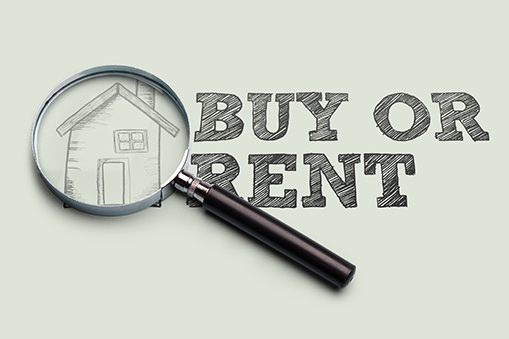As Millennials are beginning to start families and/or choosing a city where they feel they could “settle down,” they are also exploring the prospects of owning a home. So, what are the pros and cons of homeownership versus renting?
Let’s start with renting.
Live Where You Want to Live
Younger people in particular are interested in the adventure of where they are living – perhaps in the heart of downtown or across the street from the beach. It’s this desire that can be one of the key factors in deciding to rent as opposed to owning.
In locations with lots of newer rental properties, a single renter or family can have the upper hand in terms of choosing where they want to live and the rent they need to pay. And, due to the competition, newer rental communities offer residents a wide choice of recreation – tennis, basketball, you name it – and social programs.
“These programs can help foster a sense of community that tenants may find desirable,” writes Jean Folger in her article, “Renters’ Guide: Benefits of Renting” on Investopedia. “A sense of community provides opportunities for developing friendships, as well as a certain amount of security in knowing that neighbors will watch out for one another.”
Folger also point out that renters have a lot more locational flexibility than homeowners and are not locked into a specific area if the job market or economy shifts, or if a new job opportunity arises in another city or state. This is particularly important for Millennials intent on finding better jobs and better places to live.
Today’s landlords are also more willing to work with a tenant who, for whatever reason, needs to move. “Certain leases contain language, often called a termination clause, that allows tenants to terminate a lease early in exchange for a specified fee,” writes Folger.
Less Financial Stress
Renters may also enjoy a greater degree of financial flexibility than homeowners, especially newer homeowners facing 30 years of mortgage payments. Once the deposit is paid, a renter’s monthly expenses tend to be very predictable – rent payments will be the same each month, at least for the first year, and monthly utilities are pretty stable. More importantly, renters don’t have the unexpected and sometimes major expenses of homeownership such as replacing the furnace, fixing a leaky roof or replacing an appliance.
There’s another potentially positive aspect of renting that sometimes escapes attention. For an experienced investor, it may be better over the long run to invest your money in securities or other assets, instead of a home. “After paying rent, a tenant may have additional money which they can use to invest elsewhere, whether it is saving towards buying a house or investing in the stock market, and need not worry about putting additional funds into a home loan,” explains an article published on property24.com.
So, what about owning?
The Benefits of Homeownership
There are advantages to owning a home, for sure. First and foremost are the tax benefits. For most homeowners, their biggest tax benefit is the deduction for interest paid on their mortgage and other home-related loans, a benefit not available to renters.
As explained by moneytips.com, you can deduct interest payments on either primary or secondary homes up to the limit of $1 million in collective mortgage debt if married and filing jointly. The limits are $500,000 for single filers or married couples filing separately.
Another benefit is the potential for building equity in a home that a renter doesn’t have. Over the long haul a home’s value will more than likely increase. “Owning a home offers the long-term benefits of security, equity and potential growth in personal wealth,” explains property24.com. “The value of a home will appreciate over time and if you decide to sell, you can earn a profit off the sale.”
A Home is to Live In
But if your sole purpose in buying a home is to sell it for a profit, think again, cautions NPR in its article, “Forget Generation Rent: More Younger Americans Aim to Buy.”
“It’s tantalizing to think about, but ultimately very hard to predict – even the experts get it wrong. So, housing economists say don’t base your decision on a hunch that home prices will rise by very much. You might expect your house to appreciate along with inflation at two percent a year. If it appreciates more than that, great! But don’t count on it, because you never know.” Buy a home to live in for the long haul, not to make money.
Finally, if you’re thinking about purchasing your first home or a move-up home, or remodeling your existing home, talk to your local credit union about mortgage or equity financing. You’ll find the rates and terms may be more attractive than banks.
Read full article here: www.co-opcreditunions.org


